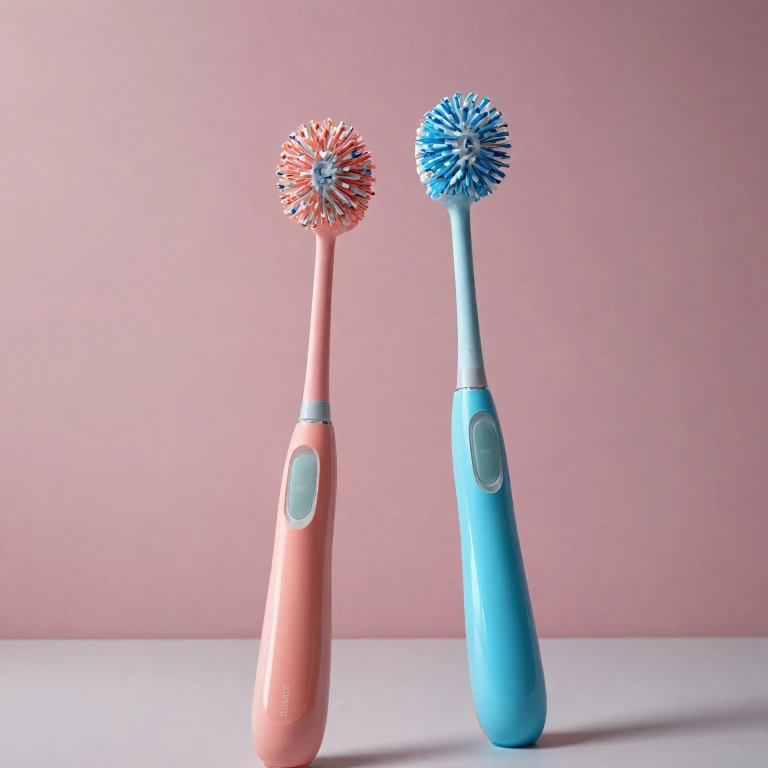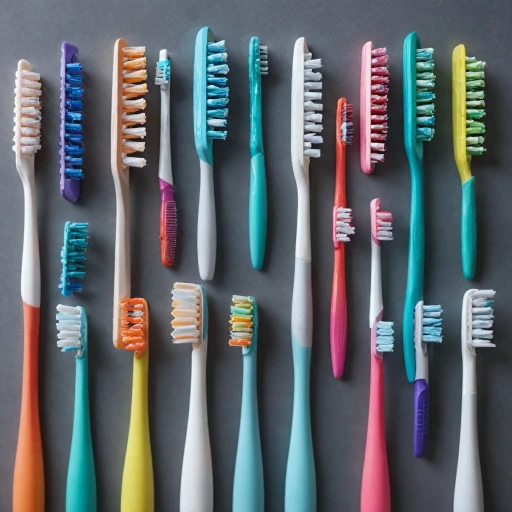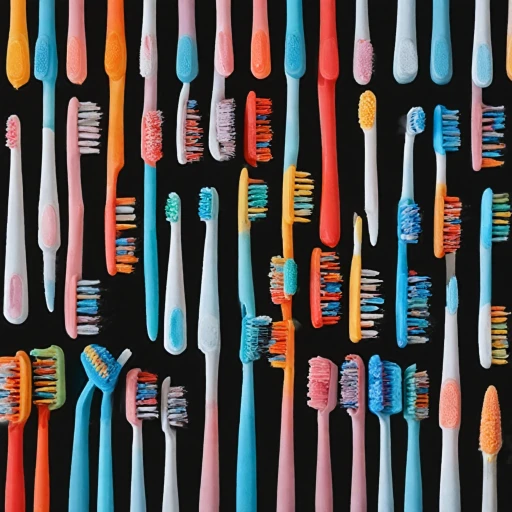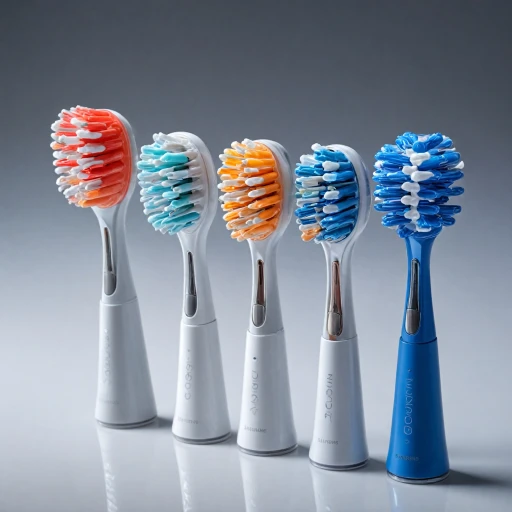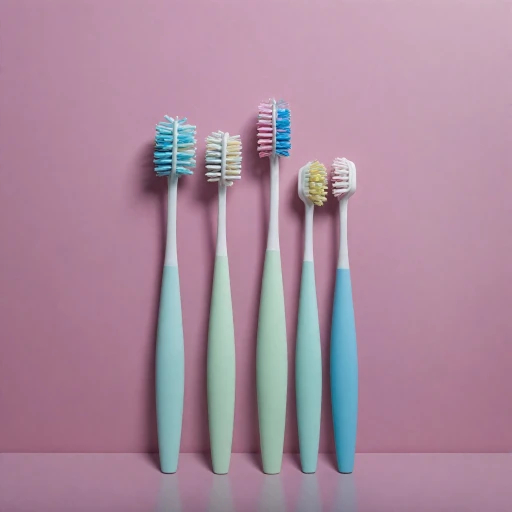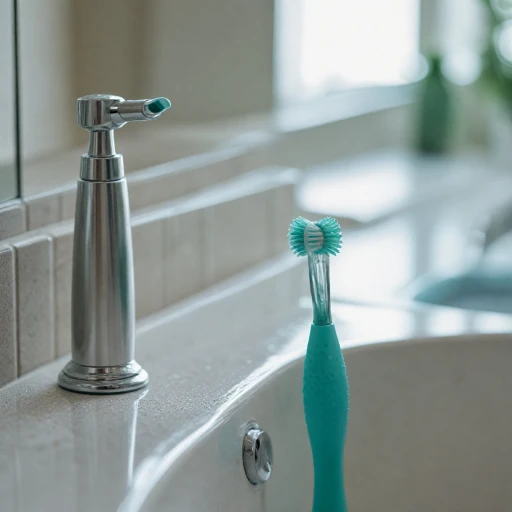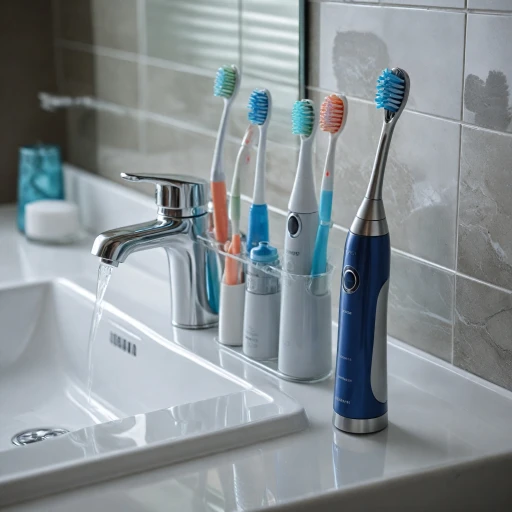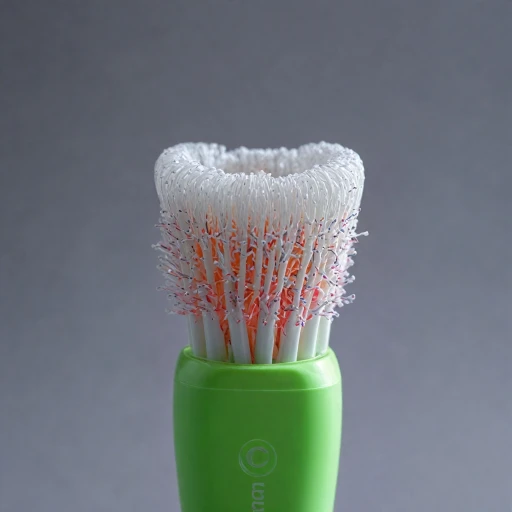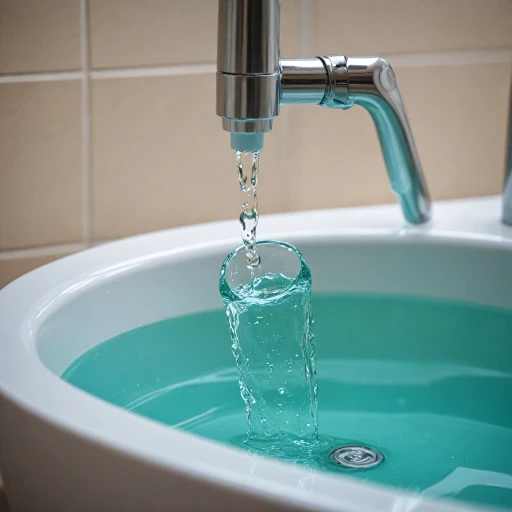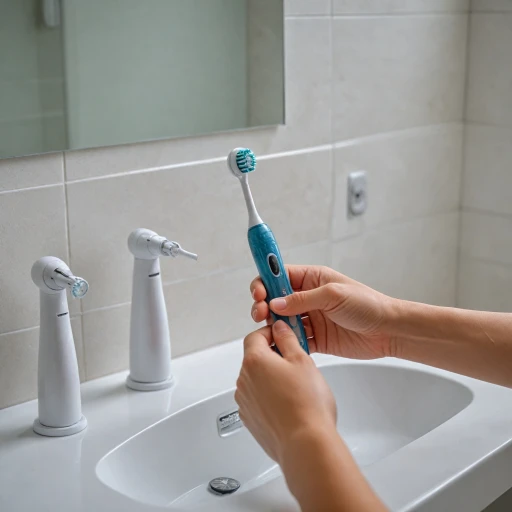
Understanding Bristle Types
The Basics: Exploring Bristle Types
Understanding the types of bristles used in electric toothbrushes is a foundational step towards achieving optimal oral health. This knowledge guides you in selecting the best toothbrush for your dental needs, considering the impact different bristle types can have on your gums and teeth. Electric toothbrushes typically feature three primary bristle categories: soft, medium, and hard. The categorization stems not only from the bristle texture itself but also from their intended use and the dental care they provide.- Soft Bristles: Characterized by their gentle touch, these are typically recommended for people with sensitive gums and for those who seek to minimize tooth enamel wear over time. Wash gently, they offer a comfortable brushing experience. Popular soft toothbrushes include those labeled as soft or extra soft, designed for those who may suffer from gum issues.
- Medium Bristles: Offering a balance between firmness and softness, medium bristles effectively remove plaque while still being gentle enough for most users. They are often preferred by individuals with healthier gums and stronger teeth.
- Hard Bristles: Less commonly recommended, hard bristles can provide a vigorous cleaning. However, they might contribute to gum recession or enamel wear if used too aggressively, making them less ideal for daily brushing.
Benefits of Soft Bristles
Emphasizing Gentle Efficiency
When it comes to maintaining optimal oral health, the choice of bristles for your electric toothbrush plays a pivotal role. Soft bristles are often recommended by dental professionals due to their gentle nature, which is particularly beneficial for individuals with sensitive gums. The impact of hard bristle brushes on gums and teeth can be detrimental in some cases, making soft bristles a safer bet for those concerned with gum health.
Soft bristles are specifically designed to be flexible, allowing them to bend and curve around the contours of your teeth and gums effectively. This flexibility not only ensures that the bristles reach into difficult crevices but also helps in dislodging food particles and plaque without causing undue wear on tooth enamel. This is especially critical for maintaining healthy teeth and gums over the long term.
Unlike medium or hard bristles, which might exert excessive pressure, soft toothbrushes provide a more forgiving, delicate brushing experience. This can prevent inflammation or irritation in vulnerable areas of the mouth. Furthermore, using a soft bristle toothbrush is ideal for individuals who have recently undergone dental procedures, as it aids in recovery by reducing the risk of gum trauma.
For those who prioritize a gentle, yet thorough cleaning experience, soft bristles offer a balanced approach to oral care. This choice can ultimately lead to improved dental health, minimizing the potential for issues that may arise from excessive brushing force.
Advantages of Medium Bristles
Perks of Choosing Medium Bristles
Medium bristle toothbrushes offer a range of benefits for those looking to maintain effective oral health routines. While soft bristles are known for their gentle approach, medium bristles strike a balance between cleaning effectiveness and comfort. Here are some reasons why medium bristles might be the right option for your dental care:- Effective Plaque Removal: Medium bristles provide a more robust brushing experience, which can be beneficial for removing stubborn plaque and debris from your teeth. The enhanced bristle firmness aids in reaching interdental spaces that softer bristles may miss.
- Durability: Medium toothbrush bristles tend to hold their shape better over time compared to their softer counterparts. This can lead to a longer-lasting brush, offering consistent performance throughout its lifespan.
- Stimulation for Gums: While being firmer than soft options, medium bristles still offer sufficient flexibility to gently massage gums during brushing. This stimulation can improve blood circulation and promote healthier gums.
- Versatile Use: Medium bristle toothbrushes offer versatility, suitable for individuals who possess neither overly sensitive gums nor require intense brushing action. It's an excellent choice if you're unsure about needing something too soft or too hard.
Factors to Consider When Choosing Bristle Type
Key Considerations for Selecting the Right Bristle Type
When choosing between soft and medium bristles for your electric toothbrush, understanding your individual oral care needs is crucial.- Oral Health Status: Your current dental health plays a big role. For instance, if you have sensitive teeth or gums, a soft bristle might be more appropriate, as it minimizes irritation and injury.
- Plaque Removal Effectiveness: Some studies suggest that both soft and medium bristles are effective at plaque removal, but they cater to different needs. Medium bristles may offer a more robust cleaning for those with less sensitivity.
- Gum Condition: If you've already experienced gum wear or are prone to receding gums, dentists often recommend more gentle options like soft bristles to promote healthier gums.
- Personal Preference: Comfort is significant. Some people prefer the gentle touch of soft bristles, while others feel their teeth are cleaner with medium bristles.
- Brushing Technique: Electric toothbrushes reduce many manual brushing errors. However, the choice of bristle can still affect how effectively you clean hard-to-reach areas and how much pressure is needed.
Expert Opinions on Bristle Selection
Insights from the Dental Community
The world of dentistry offers a plethora of insights when it comes to choosing the ideal bristle type for your electric toothbrush. By understanding the expert opinions available, you can make a more informed decision tailored to enhancing your oral health.
Dental Professionals’ Insights: Many dental professionals recommend soft bristle toothbrushes for the majority of individuals. Soft bristles gently clean teeth and gums without causing damage. They effectively remove plaque and reduce the risk of eroding enamel or irritating sensitive gums.
In contrast, some dentists suggest medium bristle toothbrushes for those without gum sensitivity and those that struggle with plaque build-up. Medium bristles can offer a more vigorous cleaning, which may be preferred for users with specific dental needs.
Studies and Dental Research: Studies have shown that while both soft and medium bristles can effectively remove plaque, soft toothbrushes may reduce the chances of gum wear and increased dental sensitivity. Evidence-based research consistently emphasizes the importance of using a toothbrush that does not harm enamel, making soft bristles a safer choice for long-term oral health.
Dental experts often warn against the use of hard bristles unless specifically recommended by a dental professional. Hard bristles can lead to gum erosion and increase tooth wear over time.
Recommendations: When selecting a bristle type, it is vital for individuals to consider their specific oral care needs, the sensitivity of their gums, and any dental conditions. Regular dental check-ups and consultations can provide personalized advice to ensure the right choice is made for one's oral health journey.

